#george grizzard
Text
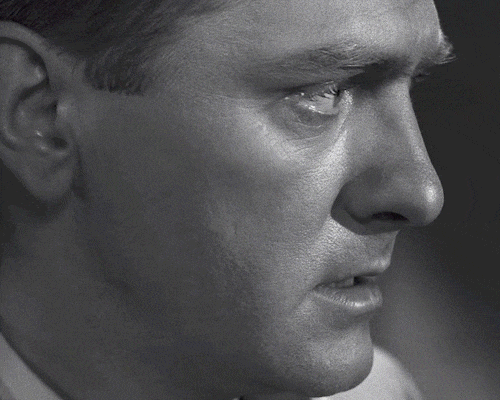

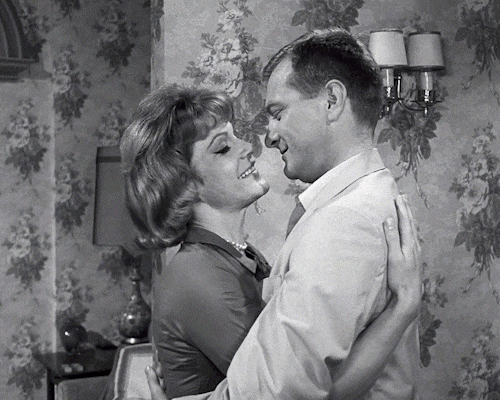



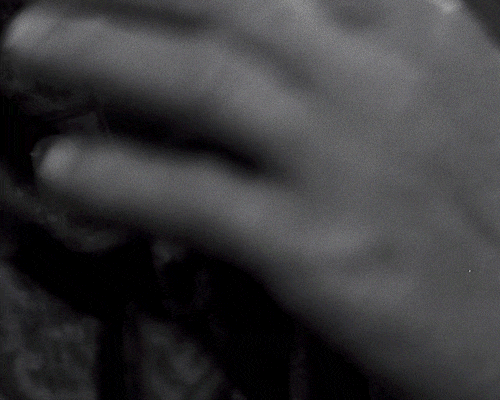
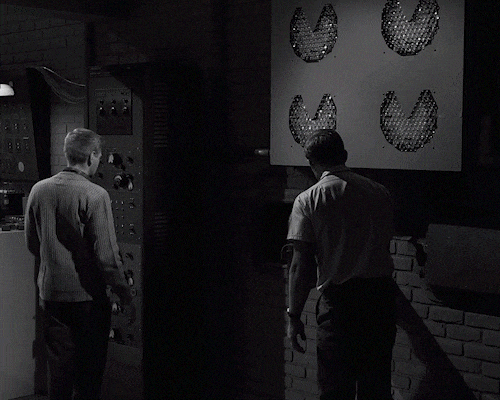



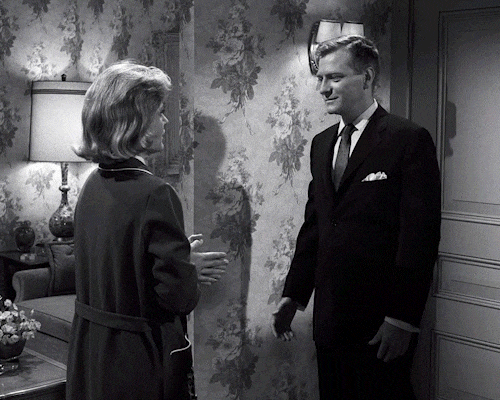
In a way, it can be said that Walter Ryder succeeded in his life's ambition, even though the man he created was, after all, himself. There may be easier ways to self-improvement, but sometimes it happens that the shortest distance between to points is a crooked line - through the Twilight Zone.
The Twilight Zone | 4.01 In His Image
#thetwilightzone#ttz#ttzedit#thetwilightzoneedit#1960's#1960's tv#1963#retrotv#retroedit#in his image#4.01#4x01#rod serling#george grizzard#gail kobe#katherine squire#on this day
21 notes
·
View notes
Text



W A T C H E D
(On February 18)
#BACHELOR PARTY (1984)#TOM HANKS#Tawny Kitaen#Neal Israel#Adrian Zmed#George Grizzard#Barbara Stuart#Robert Prescott#William Tepper#Wendie Jo Sperber#Barry Diamond#Michael Dudikoff#Deborah Harmon#Rosanne Katon#Christopher Morley#Monique Gabrielle#WATCHING#1980s movies#sex comedy#raunchy comedy#comedy
30 notes
·
View notes
Text

#arlene francis#george grizzard#phyllis newman#tony randall#what's my line?#wml#look at them looking at raquel welch
2 notes
·
View notes
Photo
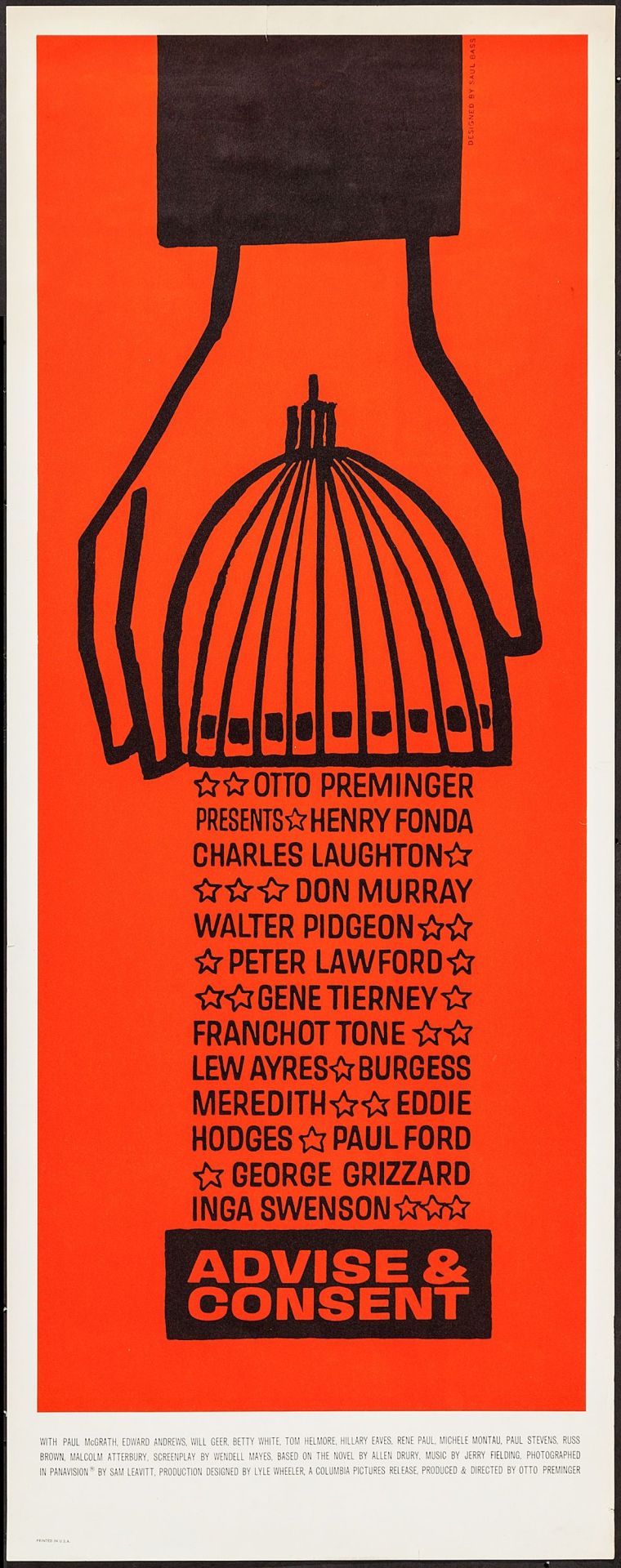
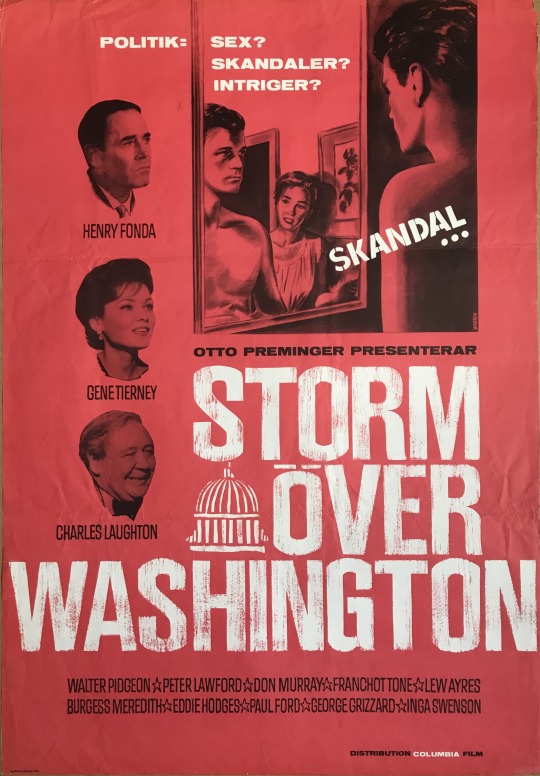
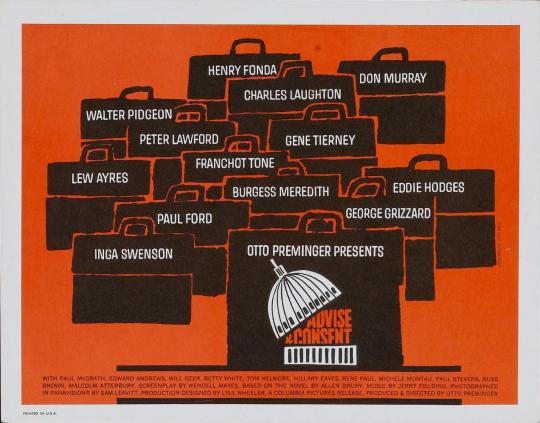


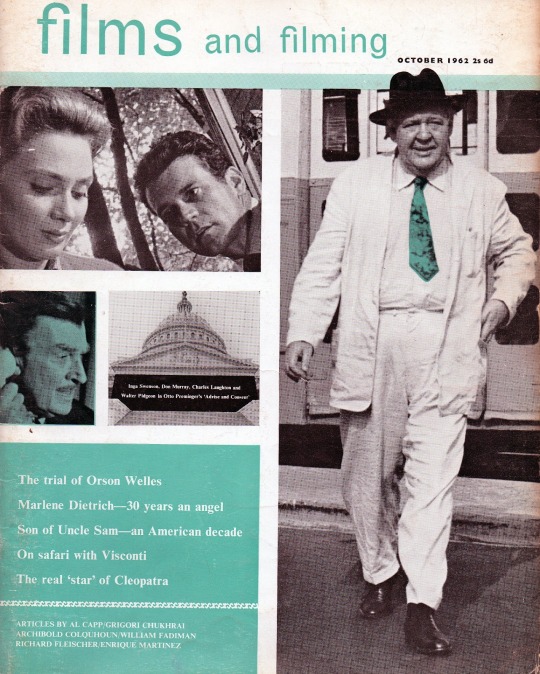
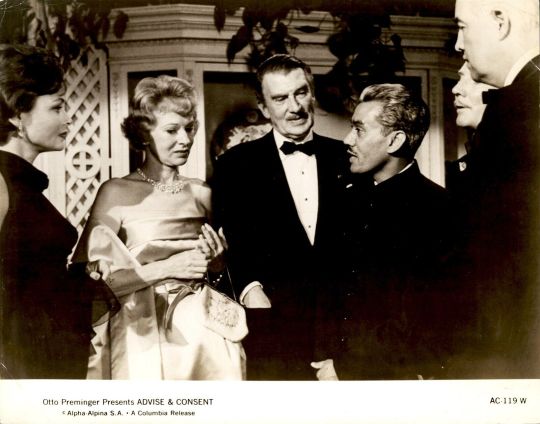

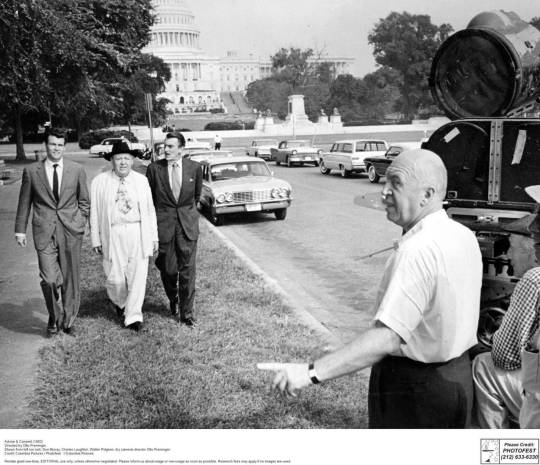
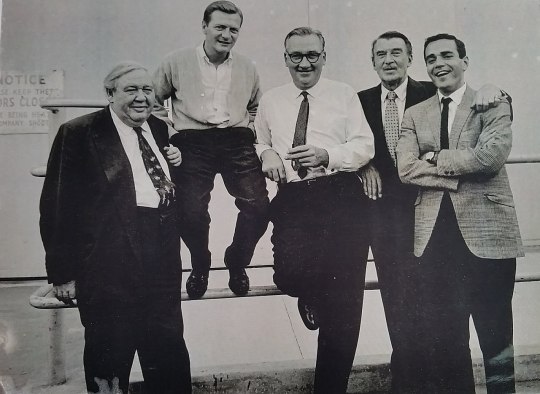
Advise & Consent (1962) Otto Preminger
June 3rd 2023
#advise & consent#1962#otto preminger#walter pidgeon#charles laughton#don murray#henry fonda#franchot tone#gene tierney#lew ayres#peter lawford#paul ford#george grizzard#inga swenson#burgess meredith#eddie hodges#paul mcgrath#advise and consent
1 note
·
View note
Photo
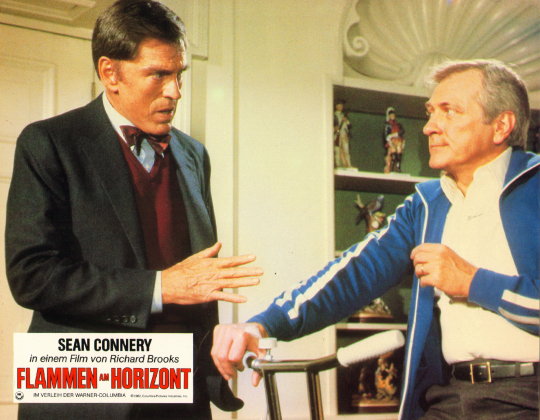
Wrong Is Right (aka The Man with the Deadly Lens), German lobby card. 1982
0 notes
Text
youtube
Baseado em terríveis fatos reais: "David", 1988, o amigo de Michael Jackson!
#david movie#michael jackson#John Erman#real tragedy#David Rothenberg#80's movies#Matthew Lawrence#Bernadette Peters#John Glover#marie rothenberg#Dan Lauria#Barbara Tarbuck#Jack Rader#George Grizzard#Youtube
1 note
·
View note
Text
2 ottobre … ricordiamo …
2 ottobre … ricordiamo …
#semprevivineiricordi #nomidaricordare #personaggiimportanti #perfettamentechic
2017: Evangelina Elizondo, Gloria Evangelina Elizondo López-Llera, attrice e cantante messicana che ha lavorato durante la cosiddetta età d’oro del cinema messicano. Nel 2014, ha ricevuto il Premio Arlequín per i suoi contributi alla cultura messicana. (n. 1929)
2007: George Grizzard, nato George Cooper Grizzard, è stato un attore statunitense, attivo in campo teatrale, televisivo e…

View On WordPress
#2 ottobre#Edith Madeleine Carroll#Evangelina Elizondo#Gene Autry#George Cooper Grizzard#George Grizzard#Gloria Evangelina Elizondo López-Llera#Lauro Gazzolo#Madeleine Carroll#Morti 2 ottobre#Orvon Gene Autry#Paola Barbara#Paola Proto#Pauline Baards#Ricordando ..#Ricordiamo#Rock Hudson#Roy Harold Fitzgerald#Roy Harold Scherer Jr#Vittorio Caprioli#Wilhelm Thomas Berger
1 note
·
View note
Text
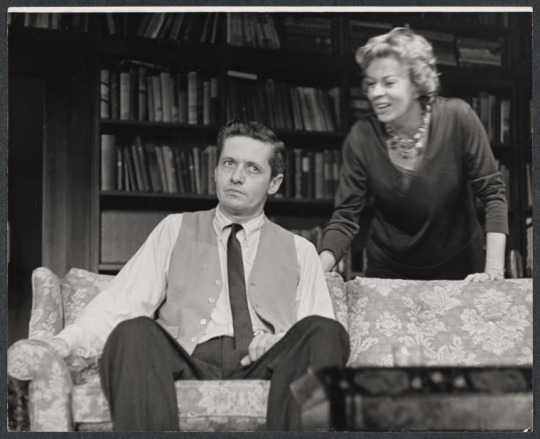
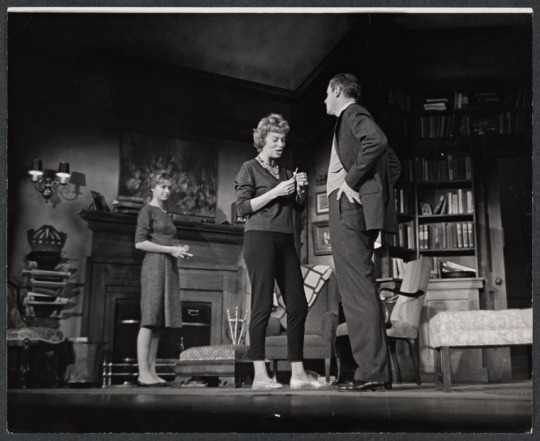


The original Broadway production of Edward Albee's "Who's Afraid of Virginia Woolf?" opened on October 13, 1962. The cast included Uta Hagen as Martha, Arthur Hill as George, Melinda Dillon as Honey and George Grizzard as Nick.
54 notes
·
View notes
Note
The bibliography sounds SO cool! Can you share some of your sources as a kind of sneak peek??
Hey, Anon! Sorry this is so late but I’d be happy to! These citations are a little informal but I’m working on cleaning them up. Here’s some of the primary and secondary materials I’m using (for Volume I of The American Icarus specifically):
Primary Materials
Hamilton, Alexander. The Papers of Alexander Hamilton, vols. 1-2. Ed. Syrett, Harold C. Columbia University Press, 1961-1962 (Digitized in partnership with the National Archives And Records Administration onto Founders Online here).
Laurens, John. The Army Correspondence of Colonel John Laurens, in the Years 1777-8, Now First Printed from Original Letters Addressed to His Father, Henry Laurens, President of Congress, with a Memoir Ed. Simms, William Gilmore. Bradford Club, 1867 (Digitized by the University of South Carolina here).
Washington, George. The Papers of George Washington, Revolutionary War Series, vols. 8-15. Ed. Chase, Philander D. Grizzard, Frank E. Jr. Hoth, David R. Lengel, Edward G. University Press of Virginia, 1997-2006 (Digitized in partnership with the National Archives And Records Administration onto Founders Online here).
Secondary Materials
Harris, Michael C. Brandywine: A Military History of the Battle That Lost Philadelphia But Saved America, September 11, 1777 Savas Beatie, 2014
Herrera, Ricardo, A. Feeding Washington's Army: Surviving The Valley Forge Winter of 1778 The University of North Carolina Press, 2022
Newton, Michael E. Alexander Hamilton: The Formative Years Eleftheria Publishing, 2015
Lefkowitz, Arthur, S. George Washington’s Indispensable Men: Alexander Hamilton, Tench Tilghman, And the Aides-De-Camp Who Helped Win American Independence Stackpole Books, 2003
#grace's asks#thanks for the ask!#the american icarus#TAI#alexander hamilton#amrev#writers on tumblr#historical fiction#amwriting#american history#writing community#bibliography#historical research#historical letters#the american revolution#history
6 notes
·
View notes
Text
24 Days of La Fayette – Day 16: François-Louis Teissèdre de Fleury
Today’s aide-de-camp is François-Louis Teissèdre de Fleury, Marquis de Fleury and son of François Teisseydre de Fleury. He was born in 1749 and first served in the French army as a volunteer from 1768 onwards. In 1772 he was made sous-aide-major in the Rouergue Regiment.
While La Fayette and his group of fellow travelers are certainly among the most famous foreign personal in the continental army, their idea was by no means novel. There were several groups of Frenchman that tried one way or another to join the War in America (and for one reason or another). Fleury was part of such a group - and he was one of the, comparatively speaking, few successful ones.
He was made a Captain of Enginers by the Continental Congress on May 22, 1777 and was awarded 50 Dollar for his travelling expenses. William Heath wrote to George Washington on April 26, 1777:
The Three appear to be Officers of Abilities—They inform me that Mr Dean promised them that their Expences should be born to Philadelphia &c.—I must confess I scarcely know what to do with them, & wish Direction, I have advanced to Col. Conway, as advance pay 150 Dollars to enable him to proceed to Philadelphia—And to Capt. Lewis Fleury 50 Dollars—The latter is engaged as a Capt. Engineer.
“To George Washington from Major General William Heath, 26 April 1777,” Founders Online, National Archives, [Original source: The Papers of George Washington, Revolutionary War Series, vol. 9, 28 March 1777 – 10 June 1777, ed. Philander D. Chase. Charlottesville: University Press of Virginia, 1999, pp. 277–280.] (12/16/2022)
He was initially assigned to a corps of rifleman but soon got promoted and re-assigned after he fought with distinction at the Battle of Brandywine, where his horse was shot from under him. A Boston newspaper wrote on December 4, 1777:
The Chevalier du Plessis, who is one of General Knox’s Family, had three Balls thro’ his Hat. Young Fleuri’s Horse was killed under him. He shew’d so much Bravery, and was so useful in rallying the Troops, that the Congress have made him a Present of another.
“Extract from a Boston Newspaper, [after 4 December 1777],” Founders Online, National Archives, [Original source: The Papers of Benjamin Franklin, vol. 25, October 1, 1777, through February 28, 1778, ed. William B. Willcox. New Haven and London: Yale University Press, 1986, pp. 244–245.] (12/16/2022)
Fleury also participated in the Battle of Germantown, where, in classical La Fayette-fashion, he was wounded in the leg. The General Orders from October 3, 1777 read as follows:
Lewis Fleury Esqr. is appointed Brigade Major to The Count Pulaski, Brigadier General of the Light Dragoons, and is to be respected as such.
“General Orders, 3 October 1777,” Founders Online, National Archives, [Original source: The Papers of George Washington, Revolutionary War Series, vol. 11, 19 August 1777 – 25 October 1777, ed. Philander D. Chase and Edward G. Lengel. Charlottesville: University Press of Virginia, 2001, pp. 372–375.] (12/16/2022)
Fleury was ordered to defend Fort Mifflin on November 4, 1777, where he would be engaged in the attack on Fort Mifflin on November 15 of the same year. Fleury was again wounded but even more important, he kept a very detailed journal and his entries from October 15-19 were often cited to illustrate the events surrounding the attack.
Concerning his wounds (and his personal value) Colonel Samuel Smith wrote to George Washington on November 16, 1777:
Major Fleury is hurt but not very much. he is a Treasure that ought not to be lost.
To George Washington from Lieutenant Colonel Samuel Smith, 16 November 1777,” Founders Online, National Archives, [Original source: The Papers of George Washington, Revolutionary War Series, vol. 12, 26 October 1777 – 25 December 1777, ed. Frank E. Grizzard, Jr. and David R. Hoth. Charlottesville: University Press of Virginia, 2002, pp. 281–282.] (12/16/2022)
La Fayette became aware of Fleury’s brave conduct and wrote to Henry Laurens on November 18, 1777:
You heard as soon almost as myself of all the interesting niews on the Delaware. The gallant defense of our forts deserves praisespraise and her daughter emulation arethe necessary attendants of an army. I am told that Major Fleury and Captain du Plessis have done theyr duty. It is a pleasant enjoyement for my mind, when some frenchmen behave a la francoise, and I can assure you that everyone who in the defense of our noble cause will show himself worthy of his country shall be mentionned in the most high terms to the king, ministry, and my friends of France when I’l be back in my natal air.
Idzerda Stanley J. et al., editors, Lafayette in the Age of the American Revolution: Selected Letters and Papers, 1776–1790, Volume 1, December 7, 1776–March 30, 1778, Cornell University Press, 1977, pp. 151-153.
George Washington had recommended Fleury and as a result of this recommendation, Fleury was commissioned a Lieutenant Colonel on November 26. La Fayette was very much in Fleury’s favour, and he wrote again to Henry Laurens on November 29, 1777:
The bearer of my letter is Mr. de Fleury who was in Fort Miflin, and as he is reccommanded by his excellency I have nothing more to say but that I am very sensible of his good conduct. (…) Mr. de Fleury receives just now the commission of lieutenant colonel, I think he wo’nt go to day to Congress, and I send this letter by one other occasion (…)
Idzerda Stanley J. et al., editors, Lafayette in the Age of the American Revolution: Selected Letters and Papers, 1776–1790, Volume 1, December 7, 1776–March 30, 1778, Cornell University Press, 1977, pp. 160-161.
Fleury was also recommended by Colonel Henry Leonard Philip, Baron d’Arendt, the commander of Fort Mifflin. Arendt wrote to Alexander Hamilton on October 26, 1777:
Col. Smith who is well acquainted with this place, its defence, and my Intentions respecting them, will make every necessary arrangement in my absence to maintain harmony between himself and Colo. [John] Green—I must do him the justice to say that he is a good Officer and I wish America a great many of the same cast. I must render the same justice likewise to Maj. Fleury who is very brave and active.
Notes of “To George Washington from Brigadier General David Forman, 26 October 1777,” Founders Online, National Archives, [Original source: The Papers of George Washington, Revolutionary War Series, vol. 12, 26 October 1777 – 25 December 1777, ed. Frank E. Grizzard, Jr. and David R. Hoth. Charlottesville: University Press of Virginia, 2002, pp. 13–16.] (12/16/2022)
George Washington also had something to say about this quarrel between his soldiers. He wrote to James Mitchell Varnum on November 4, 1777:
I thank you for your endeavours to restore confidence between the Comodore & Smith—I find something of the same kind existing between Smith and Monsr Fleury, who I consider as a very valuable Officer. How strange it is that Men, engaged in the same Important Service, should be eternally bickering, instead of giving mutual aid. Officers cannot act upon proper principles who suffer trifles to interpose to create distrust, & jealousy (…)
“From George Washington to Brigadier General James Mitchell Varnum, 4 November 1777,” Founders Online, National Archives, [Original source: The Papers of George Washington, Revolutionary War Series, vol. 12, 26 October 1777 – 25 December 1777, ed. Frank E. Grizzard, Jr. and David R. Hoth. Charlottesville: University Press of Virginia, 2002, pp. 128–129.] (12/16/2022)
I do not praise you often, but in this case I will – well said, Sir!
There was no division in the army at the present that Fleury could assume command of and he was therefor appointed sub-inspector under the Baron von Steuben. The General Orders from April 27, 1778 read:
Lieutt Coll Fleury is to act as Sub-Inspector and will attend the Baron Stuben ’till Circumstances shall admit of assigning him a Division of the Army—Each Sub-Inspector is to be attended daily by an Orderly-Serjeant drawn by turns from the Brigades of his own Inspection that the necessary orders may be communicated without delay.
“General Orders, 27 April 1778,” Founders Online, National Archives, [Original source: The Papers of George Washington, Revolutionary War Series, vol. 14, 1 March 1778 – 30 April 1778, ed. David R. Hoth. Charlottesville: University of Virginia Press, 2004, pp. 657–658.] (12/126/2022)
La Fayette, in the meantime, was lobbying for Fleury and other French officers – apparently to a degree or in a way that he later was unwilling to admit. The following passage was removed by the Marquis from a letter to George Washington from January 20, 1778:
I am told that Mullens is to be lieutenant colonel, if it is so, as that the same commission was done for Mssrs. de Fleury and du Plessis who are on every respect so much out of the line of Mullens who being by his birth of the lowest rank, and not so long ago a private soldier, I hope that those gentlemen are to be at least brigadier generals.
Idzerda Stanley J. et al., editors, Lafayette in the Age of the American Revolution: Selected Letters and Papers, 1776–1790, Volume 1, December 7, 1776–March 30, 1778, Cornell University Press, 1977, pp. 238-239.
It was around this time that preparations for the Canadian expedition were made – an expedition under La Fayette’s command that never came into fruition and probably was never really intended to do so. It was here that Fleury was appointed aide-de-camp to La Fayette. Horatio Gates wrote to our Marquis on January 24, 1778:
Congress having thought proper and in compliance with the wishes of this Board, from a Conviction of your Ardent Desire to signalize yourself in the Service of these States, to appoint you to the Command of an Expedition meditated against Montreal it is the Wish of the Board that you would immediately repair to Albany, taking with you Lt. Colo. de Fleury, and such other gallant French officers as you think will be serviceable in an Enterprise in that Quarter. (…)
Idzerda Stanley J. et al., editors, Lafayette in the Age of the American Revolution: Selected Letters and Papers, 1776–1790, Volume 1, December 7, 1776–March 30, 1778, Cornell University Press, 1977, pp. 249-250.
La Fayette in his turn wrote to Henry Laurens on February 4 and on February 7, 1778 respectively to inform him of the proceedings. He also used the opportunity to get a word for Fleury in and to gossip a bit about the same.
There is Lieutenant Colonel Fleury who not only out of my esteem and affection for him but even by a particular reccommandation of the board of war is destinated to follow me to Canada. I schould have desired of Congress every thing or employement which I could have believed more convenient to his wishes, had I not expected to see him before-you know he was upon my list. He desires to be at the head of an independent troop with the rank of Colonel. I do’nt know which will be the intentions of Congress but every thing which can please Mr. de Fleury not only as a frenchman but as a good officer, and as being Mr. de Fleury will be very agreable to me. (…) I have showed to Colonel Fleury the first lines of my letter, in order to let him know my giving willingly the reccommandation he asks for you. You know that gentleman's merit and that Duplessis and himself were made lieutenant colonels as reward of fine actions.
Idzerda Stanley J. et al., editors, Lafayette in the Age of the American Revolution: Selected Letters and Papers, 1776–1790, Volume 1, December 7, 1776–March 30, 1778, Cornell University Press, 1977, pp. 279-280.
You have seen Mr. de Fleury. I fancy entre nous that he will not be satisfied in so high pretensions. He is very unhappy that Mr. Duer is no more in Congress because he is his intimate friend and confident-that will perhaps surprise you.’ Mr. de Fleury is entre nous a fine officer but rather too ambitious. When I say such things I beg you to burn the letters.
Idzerda Stanley J. et al., editors, Lafayette in the Age of the American Revolution: Selected Letters and Papers, 1776–1790, Volume 1, December 7, 1776–March 30, 1778, Cornell University Press, 1977, pp. 282-283.
Henry Laurens replied on February 7, 1778 and his wording at the end especially is quite interesting given La Fayette’s previous letter.
I had the honour this Morning of receiving your Commands by the hands of Lt. Colo. Fleury. This Gentleman notwithstanding the aid of some able advocates in Congress has failed in his pursuit of a Colonel's Commission. You will wonder less, when you learn that the preceeding day I had strove very arduously as second to a warm recommendation from a favorite General, Gates, on behalf of Monsr. Failly, for the same Rank, without effect. The arguments adduced by Gentlemen who have opposed these measures, are strong & obvious. “We are reforming & reducing the Number of Officers in our Army, let us wait the event, & see how our own Native Officers are to be disposed of”-& besides, there is a plan in embrio for abolishing the Class of Colonel in our Army, while the Enemy have none of that Rank in the Field. Some difficulty attended obtaining leave for Monsr. Fleury to follow Your Excellency, Congress were at first of opinion he might be more usefully employed against the shipping in Delaware & formed a Resolve very flattering & tempting to induce him-but his perseverence in petitioning to be sent to Canada, prevailed. Monsr. Fleury strongly hopes Your Excellency will encourage him to raise & give him the Command of a distinct Corps of Canadians. I am persuaded you will adopt all such measures as shall promise advantage to the Service & there is no ground to doubt of your doing every reasonable & proper thing for the gratification & honour of [a] Gentleman of whom Your Excellency speaks & writes so favorably.
Idzerda Stanley J. et al., editors, Lafayette in the Age of the American Revolution: Selected Letters and Papers, 1776–1790, Volume 1, December 7, 1776–March 30, 1778, Cornell University Press, 1977, pp. 284-285.
With the failure of the expedition, Fleury once again longed for an independent command and La Fayette wrote to Charles Lee in June of 1778:
One of the best young french officers in America Mr. de Fleury wishes much to be annexed to the Rifle Corps and is desired by Clel. Morgan.
Idzerda Stanley J. et al., editors, Lafayette in the Age of the American Revolution: Selected Letters and Papers, 1776–1790, Volume 2, April 10, 1778–March 20, 1780, Cornell University Press, 1978, pp. 62-64.
In the end, Fleury was given command of a light infantry battalion on June 15, 1779. The General Orders for that day read as follows:
The sixteen companies of Light-Infantry drafted from the three divisions on this ground are to be divided into four battalions and commanded by the following officers;
4. companies from the Virginia line by Major Posey.
4—ditto from the Pennsylvania line by Lt Colo. Hay.
4—ditto two from each of the aforesaid lines by Lieutenant Colonel Fleury.
“General Orders, 15 June 1779,” Founders Online, National Archives,[Original source: The Papers of George Washington, Revolutionary War Series, vol. 21, 1 June–31 July 1779, ed. William M. Ferraro. Charlottesville: University of Virginia Press, 2012, p. 176.] (12/16/2022)
He led his battalion into the attack of Stony Point on July 16, 1779. His conduct was, by all accounts, heroic and George Washington wrote on September 30, 1779:
Colo. Fleury who I expect will have the honour of presenting this lettr. to you, and who acted an important & honourable part in the event, will give you the particulars of the assault & reduction at Stony Point (…) He led one of the columns – struck the colours of the garrison with his own hands – and in all respects behaved with intrepidity & intelligence which marks his conduct upon all occasions.
Idzerda Stanley J. et al., editors, Lafayette in the Age of the American Revolution: Selected Letters and Papers, 1776–1790, Volume 2, April 10, 1778–March 20, 1780, Cornell University Press, 1978, pp. 313-319.
His actions were indeed so gallant that Congress awarded him a silver medal on July 26, 1779. This is indeed quite remarkable since he was the only foreign officer thus honoured. No other foreign officer, not even La Fayette, received such a silver medal during the Revolutionary War.
Fleury obtained a leave of absence from Congress in September of 1779 and left America on November 16. La Fayette was at this time in France as well and was eager to receive a first-hand account from Fleury with respect to political as well as to military matters. Although still in possession of his American commission, Fleury re-entered the French army and was made a Major of the Saintonge Regiment in March of 1780 (this might interest you @acrossthewavesoftime.) A few months later, in July of 1780, he joined General Rochambeau’s expeditionary force. Fleury was one of the French soldiers at the Battle of Yorktown. He left America for good in January of 1783 and sailed from Boston to France. It was only at this point, that he resigned his American commission. In France, he joined the Pondichéry Regiment and was named its Colonel. He was elevated to a maréshal de camp in 1791 and fought in the battle of Mons on April 28-30, 1792. During the retreat, he was wounded for the third time. While his previous injuries were all relative mild, this one appears to have been rather serious. He resigned from the army not long after.
Not much is known about Fleury’s later life, and I have seen drastically different accounts of the time of his death. While some editors of (La Fayette’s) letters/papers have put the date of his death around 1814, it is far more likely that he died in 1799. Fleury never married and there are no known children of his.
François Louis Teisseydre, Marquis de Fleury’s legacy is the De Fleury Medal that is granted to outstanding members of the United States Army Corps of Engineers.
#24 days of la fayette#la fayette's aide-de-camps#marquis de lafayette#french history#la fayette#american history#american revolution#french revolution#letter#history#francois louis teisseydre#marquis de fleury#1777#1778#1772#1779#1780#1783#battle of yorktown#stony point#fort mifflin#henry laurens#george washington#battle of brandywine#battle of germantown#1799#1791#1792#1814#founders online
17 notes
·
View notes
Photo
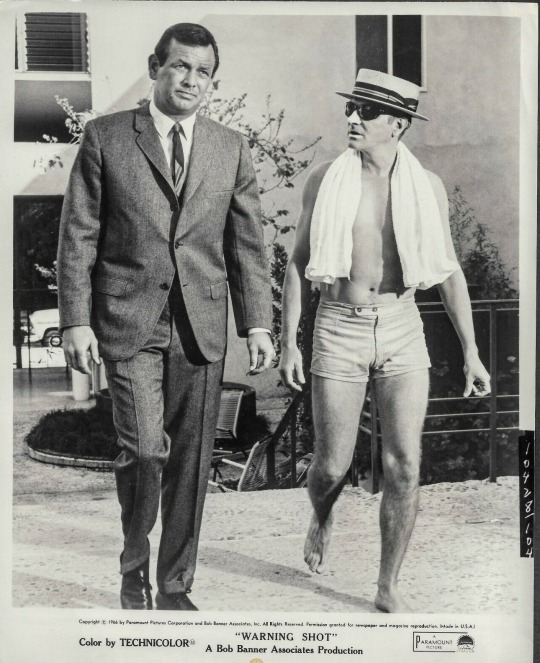
David Janssen and George Grizzard in WARNING SHOT, 1967
This is an interesting mystery with an enviable cast. In addition to Janssen and Grizzard, it also starred Stephanie Powers, Joan Collins, Eleanor Parker, Lillian Gish, Carroll O’Connor, Keenan Wynn, George Sanders, Ed Begley, Sam Wanamaker, Steve Allen, Vito Scotti and Walter Pidgeon.
9 notes
·
View notes
Text




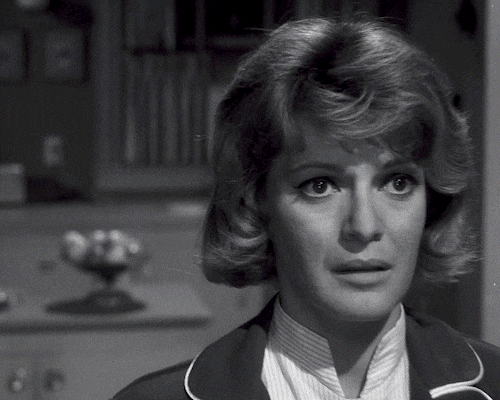
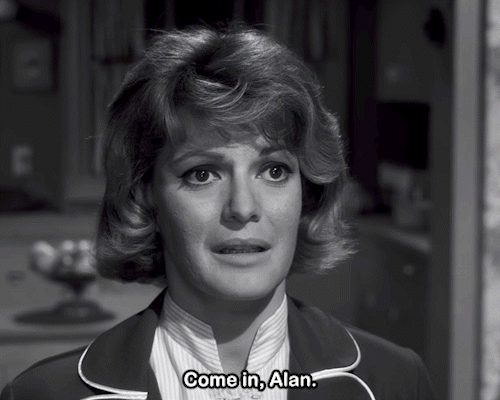
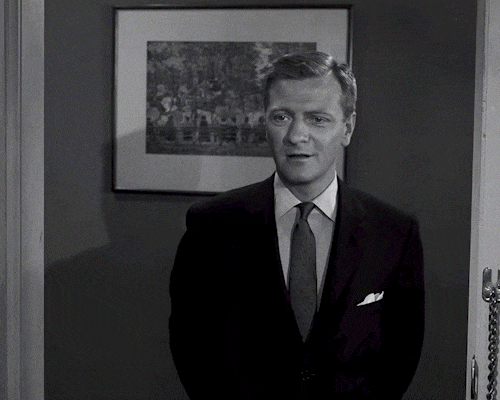

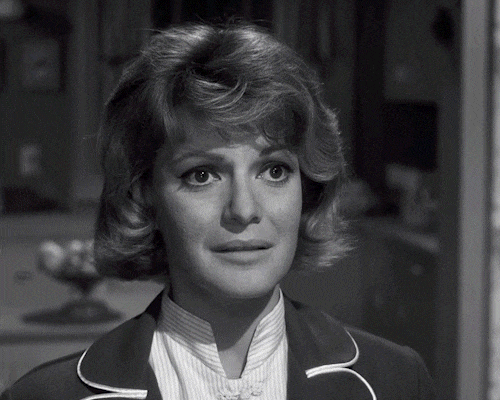

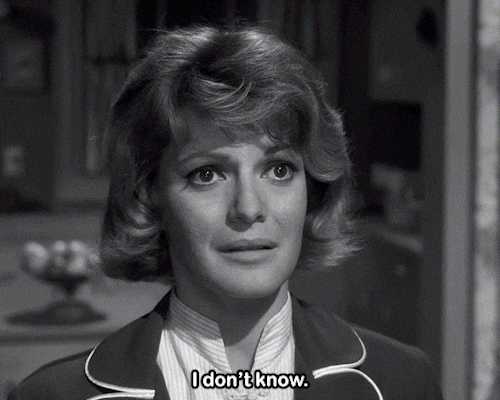
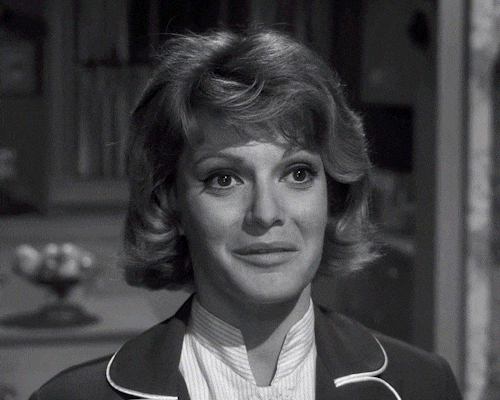


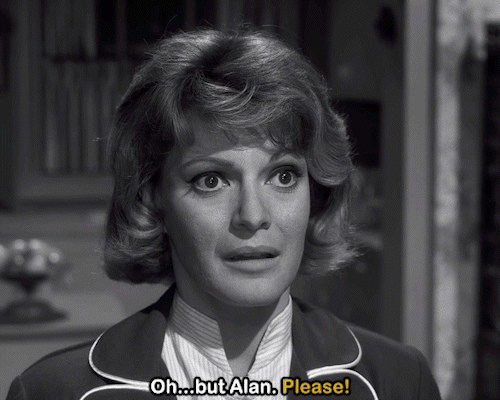
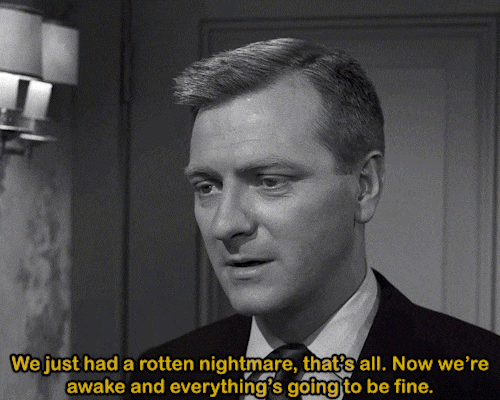



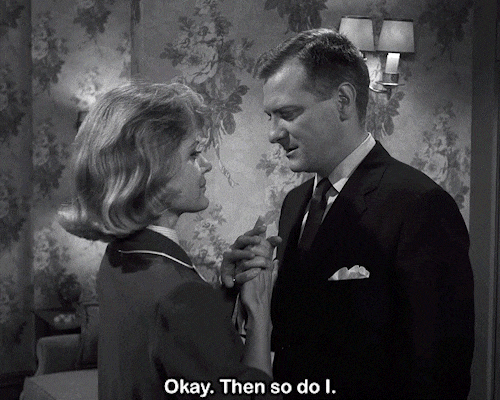
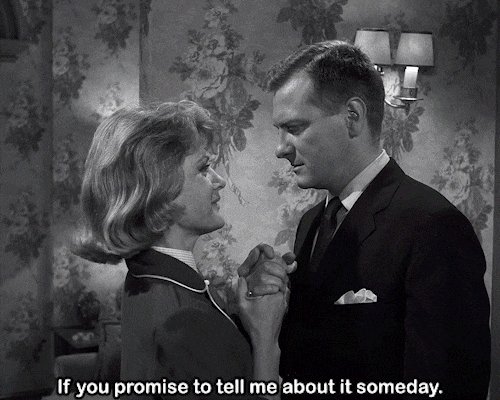

GEORGE GRIZZARD and GAIL KOBE in THE TWILIGHT ZONE | 4.01 IN HIS IMAGE
#thetwilightzone#ttz#ttzedit#thetwilightzoneedit#1960's#1960's tv#1963#in his image#retro tv#retroedit#retro#4.01#4x01#george grizzard#gail kobe#romancegif#romanceedit
7 notes
·
View notes
Text
Birthdays 4.1
Beer Birthdays
Thomas Fowell Buxton (1786)
Carl W. Conrad (1843)
William H. Gerst (1852)
Spencer Nieubar (19??)
Greg Kitchen (1971)
Five Favorite Birthdays
Jean Anthelme Brillat-Savarin; French food writer (1755)
Jimmy Cliff; Reggae singer (1948)
Rachel Maddow; television journalist (1973)
Anne McCaffrey; writer (1926)
Sergei Rachmaninoff; composer (1873)
Famous Birthdays
Wallace Beery; actor (1885)
Otto von Bismarck; German politician, statesman (1815)
Richard Castle; fictional character
Lon Chaney; actor (1883)
Samuel R. Delany; writer (1942)
Willie Dixon; blues singer (1915)
James Fisk; businessman (1834)
George Grizzard; actor (1928)
William Harvey; physician, scientist (1578)
Alberta Hunter; singer (1895)
Gordon Jump; actor (1932)
Milan Kundera; Czech writer (1929)
Sung Hi Lee; Korean model (1970)
Ali McGraw; actor (1939)
Toshiro Mifune; actor (1920)
Phil Niekro; Miilwaukee/Atlanta Braves P (1939)
Annette O'Toole; actor (1952)
Bijou Phillips; actor (1980)
Jane Powell; actor (1929)
Debie Reynolds; actor (1932)
Libby Riddles; dogsled racer (1956)
Edmond Rostand; poet (1868)
Gil Scott-Heron; writer, singer, poet (1949)
Barry Sonenfeld; film director (1953)
0 notes
Photo
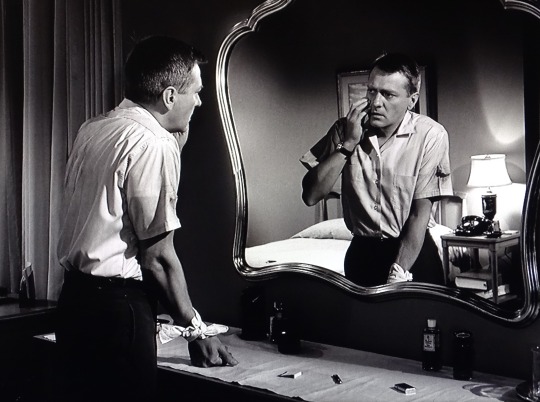
The Twilight Zone Season 4 Episode 1: In His Image
George Grizzard
Whew! 52 minutes is a loooong time for an episode of The Twilight Zone! (And technically, the series has dropped “The” from the title leaving it to be Twilight Zone. I don’t care, I’m still going to refer to it as THE Twilight Zone.)
0 notes
Photo

Wrong Is Right (aka The Man with the Deadly Lens), German lobby card. 1982
0 notes
Text
The matriarch dual family


“The people stick with you you can make a mistake and go home again,” she added. Fichandler said in an interview on the website of Theater Communications Group, an umbrella organization for nonprofit theaters.

“The company is the equivalent in the world of theater to the family in a social form when you knock on the door, they have to let you in,” Ms. (Arena phased out its acting company in the 1990s, after Ms. Its resident actors over the years made up a list of luminaries: Robert Prosky, Frances Sternhagen, George Grizzard, Philip Bosco, Roy Scheider, Robert Foxworth and Dianne Wiest, in addition to Mr. It is no surprise, then, that Arena’s success was built on the resident company format. Fichandler’s belief, however, that the actor is the central element of the theater - “because it’s the behavior of the actor, the experience of the actor that reveals to the audience who they are,” she said - and that an acting company best allows the actor to thrive. In 1968, Arena became the first regional theater to send a play to Broadway when a trimmed-down version of its production of “The Great White Hope,” Howard Sackler’s extravagant stage biography of the boxer Jack Johnson that starred James Earl Jones and Jane Alexander leading a cast of 60 actors, opened at the Alvin Theater (since renamed for Neil Simon) and won the Tony Award for best play and the Pulitzer Prize for drama. So did its production of the musical revue “Tintypes.” Its numerous new works by emerging writers have included the American premieres of “Indians,” Arthur Kopit’s scabrous sendup of the mythology of the American West, and “Moonchildren,” Michael Weller’s portrayal of college students living communally both ended up on Broadway. Under her leadership, Arena became one of the nation’s leading theater companies and in the forefront of a regional theater movement that brought quality professional productions to communities from coast to coast.Īrena’s mission statement declares its dedication to American theater artists, but through its history it has ranged widely, presenting the plays of both American and European masters - Chekhov and O’Neill among them - and dramas by contemporary writers, including Arthur Miller, Tom Stoppard, Athol Fugard and Edward Albee. And though she never became a household name, she was a titan in the theater world, a visionary producer and teacher who was instrumental in seeding the American continent with the work of playwrights, directors, actors and designers. Fichandler, whose title was artistic director or producing director, was Arena’s artistic force until she stepped down in 1991. Fichandler handled the business end of the theater. Mangum did not stay at Arena he had a career directing overseas and elsewhere in the United States. They converted a former burlesque house and movie theater in a rundown section of the city to a 247-seat theater in the round and put on an ambitious first season of 18 productions, including three Shakespeare plays and works by Molière, Shaw, Synge, Gogol, Tennessee Williams and Oscar Wilde. Indeed, the existence of a professional resident theater in the United States outside of New York was, at the time, nearly anomalous. The impetus to start a company in the first place, she later said, was that there was little theater to be seen in Washington - or anywhere else but New York - aside from amateur productions, summer stock, festivals and touring Broadway shows. Fichandler (pronounced fitch-AND-ler), who had studied Russian at Cornell, was finishing her master’s degree in theater at George Washington University - her thesis was about Shakespeare in the Soviet Union - when she and her husband, Thomas Fichandler, along with a theater teacher, Edward Mangum, founded Arena in 1950. Her son Mark said the cause was congestive heart failure. Zelda Fichandler, a seminal figure in the regional theater movement who led Arena Stage in Washington for 41 years, producing more than 400 shows and directing more than 50 for a company that helped spur the growth of professional theater around the country and became its centerpiece in the nation’s capital, died on Friday at her home in Washington.

0 notes